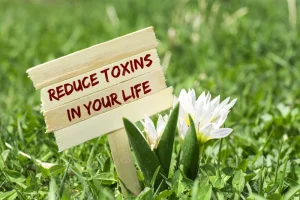Dry January’s health benefits and how to take an alcohol break : Life Kit : NPR

So, now is as good a time as any to try the sober-curious lifestyle. The communal aspect of the Dry January challenge might make it easier, too, particularly if you have friends or family members who want to join you in abstaining from alcohol for 31 days. The dry month is also an opportune time to examine your relationship with alcohol and decide if you might want to change your drinking habits to improve your health. Whenever you decide to take a break from alcohol, whether it be during a designated sober month or any other time of the year, the NIAAA website, Rethinking Drinking, has strategies that can help you stop drinking. These include tips for cutting down or quitting, reminder strategies to help you remember why and how you decided to do it, and ways your family and friends can support you. All these strategies can help you stay motivated in your efforts to take a break from alcohol.
Dry January: How to take a break from alcohol so you’ll actually stick with it
That said, If you’ve been drinking excessively, then stopping drinking cold turkey can lead to withdrawal symptoms. You may not need to https://ecosoberhouse.com/article/recommended-vitamins-for-recovering-alcoholics/ completely reinvent your life to quit drinking, but making a few changes in your surroundings to help avoid alcohol triggers can make a big difference. Family and friends can provide encouragement and support when you stop drinking. By opening up about your relationship with alcohol, you might also encourage others to explore their own drinking habits.
What are the long-term health benefits of not drinking alcohol?

While that amount is generally thought to be okay for your health, having more than that on a regular basis isn’t. The thing is, it’s easy to go above moderate levels of drinking is a mainstay of your social life. After all, a serving of alcohol is a 12-ounce beer, 5-ounce glass of wine, or 1.5 ounces of hard alcohol.1 Most people have more than that at happy hour or on the weekend. Symptoms can range from headache, elevated blood pressure, heart palpitations, and nausea and vomiting to tremors, hallucination and in severe cases death. After two weeks into quitting alcohol, you may start to lose weight, due to the removal of calories from alcoholic drinks. Several studies have shown that reducing or eliminating alcohol long term can significantly decrease the risk of cancer, as well as heart and liver problems.
After One Week

Many of the participants said they had more energy, which fits with the experience of listener Sarah Black Sadler. „The biggest thing that I noticed is that I don’t need alcohol to have a good time with my friends.“ In this situation it can be dangerous to stop drinking completely or cut your drinking too quickly without medical support.

It’s true that taking a break from alcohol for any amount of time will be beneficial taking a break from alcohol overall, with some research showing that liver function begins to improve in as little as two to three weeks. But a full detox is needed for the most benefit, and how much time that takes depends on a variety of personal factors. Getting to the end of a month without alcohol is a huge accomplishment. By this time, physical withdrawal symptoms should’ve cleared and you may be experiencing less anxiety and depression.

Improves Sleep
- While that amount is generally thought to be okay for your health, having more than that on a regular basis isn’t.
- For some people, heart damage from alcohol overuse isn’t reversible after any amount of time.
- What many people don’t realize is that alcohol produces a toxic effect on the body.
- After one month, the researchers documented a reduction in the participants’ GGT.
- “There are multiple ways to manage alcohol use in social settings to include learning and implementing harm reduction strategies, moderation management, and using refusal skills.
Maybe you just want a break, or university, parental, academic or legal pressures have come to light, or you believe you just need to cut back. Regardless of the reason and goal, 30 days of abstinence is the best way to start. Even if the goal is to cut down, abstinence can assist with lowering tolerance to ease moderation of use, and your body could use the break. This site is meant to assist you through 30 days of not drinking. When you finish the 30 days, you can make the decision to continue not drinking or to moderate your use.
- You may not need to completely reinvent your life to quit drinking, but making a few changes in your surroundings to help avoid alcohol triggers can make a big difference.
- In particular, she’s committed to helping decrease stigma around mental health issues.
- For drinkers who have become alcohol dependent, taking a short break is likely not an option.
- Chris Marshall is a certified substance abuse counselor and the founder of Sans Bar, a venue for „the nightlife experience“ without the alcohol, in Austin, Texas.
- Just as you might think to yourself, “maybe I should get more sleep this week,” you can think, “maybe I should check in with myself about my alcohol consumption.” Here’s how to start.
- He’s a senior scientific adviser at the NIH institute that studies alcohol, and he says the results have been kind of surprising.
Those with a dependence on alcohol, or who experience alcohol withdrawal when trying to quit, should consult with a doctor for treatment and to develop a safe plan to reduce or eliminate drinking, Witkiewitz said. Whether for a short period of time or throughout the year, reducing alcohol by any amount affects your body in a number of ways. Upping your water intake during an alcohol break can help refresh your body and mind, too, because too much alcohol can cause dehydration.
Though you may not have experienced any legal problems resulting from your drinking, you may have had some close calls. Legal consequences often affect future opportunities such as employment, admittance to academic programs, or studying abroad. Now, if you’re worried that you are one of the 17 million U.S. adults who are alcohol dependent, and alcohol is causing you stress or harm, seek medical advice. As we’ve reported, there are a variety of treatments beyond Alcoholics Anonymous, including counseling, medications and support groups to help people who want to end that dependency. This NIAAA guide can help you find a program or approach that’s right for you. He became a substance abuse counselor to help others but found that being in recovery was often really lonely.
Share your social challenge
Amitava Dasgupta, PhD, medical director of clinical laboratory at the University of Kansas Medical Center and author of the book, “The Science of Drinking,” agreed. Alcohol consumption has been also linked to head, neck, esophagus, liver, breast, colon, and rectum cancers.



